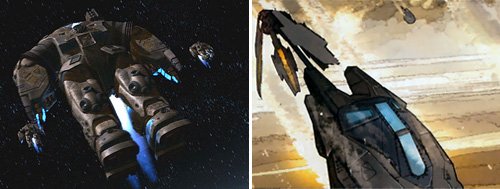Copyright and Originality
Copyright is a complex discussion and there is no one solid way to explain the basis of copyright infringements. Making a copyright claim can come from a variety of angles, but it is best to put it into subject of interpretation. Common sense also applies.
The Internet is no stranger of copyright infringements. So where do we draw the line when someone steals from someone’s work and make it its own? On the other hand, there are a lot of sources out there to get ideas from and make it original without hurting the source. Let’s review all about copyright:
What is copyright law?
By definition, copyright means a set of exclusive rights granted to the owner to print, copy, reproduce or publish copyrighted works. It started out as to prevent copying of books unlawfully back in the time when printing press was invented in 1450 about the time when Gutenberg Press was introduced. Over time copyright law now covers a wide range of works especially in the artistic and creative fields, it spans from movies to illustrations, and to other form artworks as long as any creative work is done to generate revenue or credit to the creator. Copyright law was developed to protect the creator of a particular work against theft of creative work by individuals with the intent generating revenue from it.
What is copyright infringement?
Infringement happens when you take whole or part of someone’s work, derive the work or keep the original work in its current state, and use it for one’s own and take credit or profit from it without any permission from the copyright owner. By default all creative works posted on the Internet are subject to copyright even if it is not explicitly declared. Unless otherwise the creative work is explicitly described as for public domain use, you cannot take anything without the expressed permission of the owner.
What is fair use?
Fair use is a sensitive topic where copyright infringement may apply or may get exempted. Simply put, fair use means is an exclusive right given by copyright holders where you can reproduce from the original work from which it serves as an incentive to create works that ultimately enrich society as a whole. In return, this granted right hopefully gives the creators who took from the source material for the enrichment of science, education, the arts, or its entertainment value.
Determining what is fair use is case-to-case basis. Should a copyright owner takes to court, judges must calculate on these four factors indicated on the section 107 of the Copyright Act. Take note that these factors are not an exact basis to pass verdict:
1. For what purpose the use of copyrighted work
– Is it for transformative quality – Is the new work the same as the copyrighted work, or have you transformed the original work, using it in a new and different way?
– Is it for commercial or noncommercial – Will you make money from the new work, or is it intended for nonprofit, educational, or personal purposes? Commercial uses can still be fair uses, but courts are more likely to find fair use where the use is for noncommercial purposes.
2. What is nature of the copyrighted work? It is likely to be considered fair when the copied work is factual in nature rather than creative.
3. How much of the portion used in relation to the copyrighted work as a whole. How much of the copyrighted work did you use in the creator’s new work? Copying nearly all of the original work or copying its essential parts may weigh against fair use. But “how much is too much” depends on the purpose of the second use. Example: parodies – may need to make extensive use of an original work to get the point across.
4. The potential market on the work you produced from the original source. Paid or free, this fourth factor applies. If you use the copied work in a way that substitutes for the original in the market, it will weigh against fair use. On the other hand, uses of copyrighted material that serves a different audience for different purposes are more likely to be considered fair.
There are so many examples out there where an original work gets reproduced by another creator. A few of many examples are parody, fan-fiction, tributes, and references. This topic can go on further but to get you informed, this is the rough idea about fair use. If in doubt, you can ask permission first from the original creator.
How can your work be original?
It is ok to get inspired even if you source from someone’s work. Ideally, professional courtesy from the original creator is required, but of course in reality, most people take things from the internet without considering the where the source material comes from. Let’s take for example Halo series; the franchise itself is considered original work but you may notice one of many elements of the series that is inspired and enhanced by other sources.

Sergeant Apone from Aliens and Halo’s Sergeant Johnson
Note the cap, ethnicity, attitude, and cigar

Startship Troopers: Roughnecks and Halo series
Note the exosuit, the helmet, weapons, the idea of waging war in space
Dropship from Starship Troopers and Halo’s Pelican
Note the cockpit window, the nose, the idea of having wings for a transport ship
Startship Troopers: Roughnecks combat drop and Halo’s ODST
Note the idea of a paratrooper from space dropping through the Thermosphere, the idea of a disposable protective vehicle upon re-entry for soldiers
The bottom line is that copyright is neither a limiter nor something that you need to worry about to your creative workflow. You can do as much as you want, get as much inspiration as you can, and even make a tribute to your favorite pop culture reference. Keep on copying and copying until you become original. Besides, you can’t expect to produce great creative work from you if you don’t absorb from other great creative works first. Put something in before you make something out.









No Comments